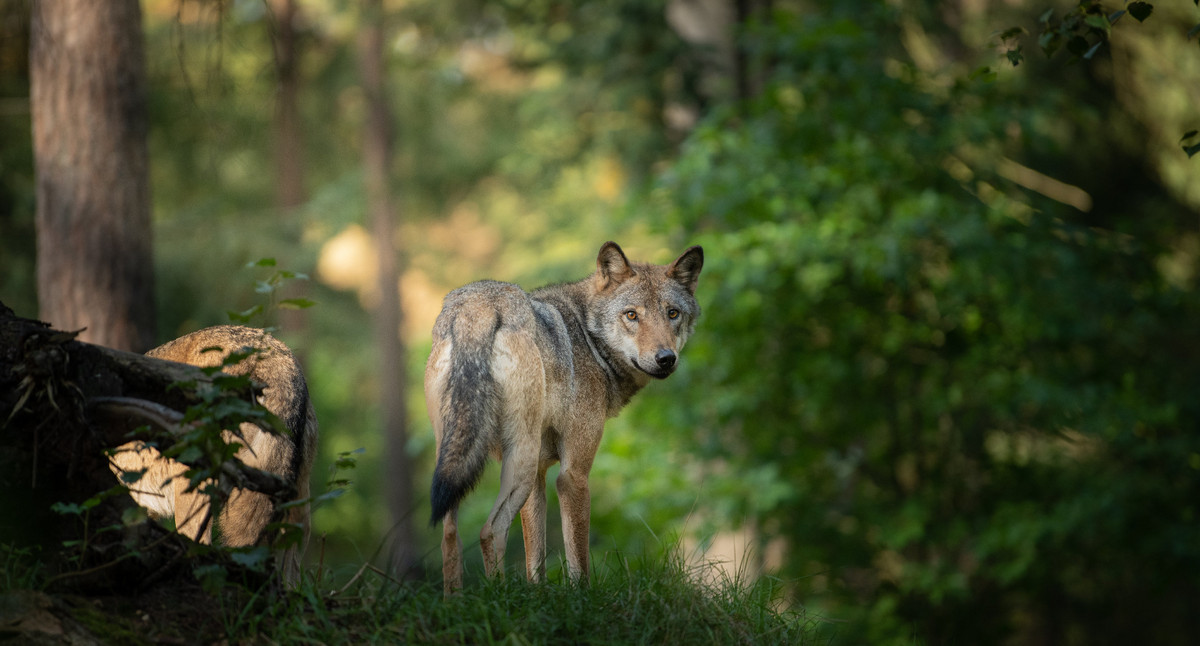Nature conservation and our commitment towards the different kinds of flora and fauna form the core of our central mission of our society. We want to preserve what secures our natural necessities and we have therefore placed nature protection at the centre of our policies. Since nature does not stop at national borders, nature conservation law regulations apply at European or national level. In Baden-Württemberg, the nature conservation administration is responsible for protecting different natural habitats.
Our strategy for the protection of nature includes a comprehensive, concrete and state-wide unique catalogue of measures which places biodiversity as a key mission since that affects everybody.
Maintaining the native diversity of the different kinds of animals and plants, securing their habitat and improving their chances for survival is one of the most important socio-political tasks (for us). Therefore, in 2020 the „Biodiversitätsstärkungsgesetz“ (State Act to strengthen biodiversity) entered into force, providing new and innovative rules on insect-friendly gardening and illumination, the protection of meadow orchards, the prohibition of gravel gardens and measures to raise the share of ecological agriculture and to reduce the amount of pesticides among others. This made Baden-Württemberg’s nature conservation law the most progressive in the whole of Germany and beyond.
The richly diverse cultural landscape in Baden-Württemberg with its disparate habitats, types of flora and fauna and their function as recreational space for the citizens shows the importance that Baden-Württemberg places on the maintenance of this biodiversity. The nature conservation authorities are active in many areas in this regard: They preserve valuable regions with the help of experts who have been specially trained for this purpose, they record the presence of the different kinds of plants and animals and prepare information and programs to maintain them. In this way, we sustain the biodiversity in Baden-Württemberg together with many others who are engaged in farming and forestry as well as with collectives and other initiatives: Nature protection does not take place only in the several nature and landscape conservation areas and in Natura 2000 sites as well as in the major nature reserves, but actually everywhere in Baden-Württemberg.
Preserving what sustains us – the state of Baden-Württemberg is committed to preserving biodiversity as the basis of life. That is why the state government launched the Special Biodiversity Enhancement Programme in 2018. Three ministries are involved in the programme: the Ministry of Environment, the Ministry of Agriculture and the Ministry of Transport. This set-up is unique in Germany.
60 million euros have been invested in projects and measures aimed at improving habitats and thus conserving animal and plant species since 2018. The measures focus, for example, on the biotope network, forests, agricultural landscapes or protected areas. In addition twelve million euros were invested in various monitoring activities. The insect monitoring carried out in Baden-Württemberg is also unique in Germany.
Everyone must pull together to stop the loss of animal and plant species
Financing of the special programme ist secured until 2027. The three ministries have access to circa 15 million euros per year. The goal in this phase is to consolidate successful measures. In the medium term, however, these measures are to be transferred to regular funding outside the special programme. This will ensure that money is also available for biodiversity conservation in the long term.
The goal is likewise to increasingly implement measures across administrative boundaries, i.e. jointly. The loss of animal and plant species as well as habitats can only be stopped if all actors pull together: nature conservation, agriculture, forestry, water management, transport as well as politics and the population.
To ensure that the right steps are taken, the special programme is accompanied by an independent expert panel from the scientific community. The expert committee provides advice during implementation and evaluates the measures implemented with regard to their objectives.
Natura 2000, the European network of nature reserves, is meant to protect important habitats for flora and fauna as well as the different species, across all of Europe and to maintain them for future generations. These include, for example, peatland and near natural lakes and rivers. Protected species include, for example, the lady`s slipper orchid, the salmon and the red kite. The most important pillars for this network of nature reserves are the Habitats Directive from 1992 and the Directive on the Protection of Birds from 1979.
Baden-Württemberg is contributing its share to Natura 2000 and has declared 11.6 % of its area (of the state) as habitats directive sites and 10.9 % as birds directive sites. In its so called management plans, the presence of 53 types of habitats, 61 protected species as well as 39 breeding birds species are being recorded and the conservation and development objectives are defined. The management plans for all the Natura 2000 regions are being worked out together with user groups according to a uniform procedure and in a transparent manner.
The implementation of the conservation and development measures is being carried out particularly within the framework of a contracted nature protection scheme. Through this scheme, a targeted and area-related maintenance and cultivation is contractually agreed upon the users of the land and the nature administrations. The state of the habitats and the existence of the various life forms are supervised through a monitoring program. Through the LIFE Program that has been set up by the European Commission, a further effective instrument is available for the promotion and development of the Natura 2000 protected reserves network.
Baden-Württemberg has a remarkable number of major nature reserves: Seven nature parks, two biosphere reserves and one national park. Nature parks are primarily intended for environmentally friendly tourism: People seeking recreation and the landscapes that need conservation come together in these reserves.
The Schwarzwald (Black Forest) National Park was set up in 2014. Its motto is: “Let nature be natural”. Protection of the development process is of primary importance, this means nature is allowed to develop itself over large areas without the intervention of humans.
In biosphere reserves, living in harmony with nature is in the foreground: Biosphere reserves are model regions which show how activities in the fields of commerce, settlement activities and tourism can be developed together with the requirements of nature and environment in an innovative way. The Schwäbische Alb (Swabian Alb) biosphere reserve has been a UNESCO biosphere reserve from 2009, the Schwarzwald (Black Forest) biosphere is a UNESCO biosphere reserve since 2017.
Our nature and landscape conservation areas are rather small when compared to the regions mentioned above, however they are much more in number. Usually, they are a part of the Natura 2000 network and/or a major nature reserve too. They normally offer in addition to the instruments of nature reserve and Natura 2000 areas protection and conservation to very special types of flora and fauna or to landscapes.
Preserving and promoting biodiversity and slowing down the pace of climate change are the key challenges of the next ten years. Halting the loss of biodiversity in the cultivated landscape is a community task. Nature conservation and agriculture, politics and society have a joint responsibility to stop the extinction of species.
In 2019, the Baden-Württemberg Ministry of the Environment therefore initiated a dialogue process between nature conservation and agriculture. Since then, a routine, stable and trusting cooperation between nature conservation and agriculture for the 2020s has been developed within the administration as well as outside it, for example between nature conservation and agricultural associations. The following dialogue processes are currently in place:
Dialogue forum on agriculture and biodiversity
In connection with discussions about the "Saves the Bees" petition for a referendum on the protection of species, it was agreed to set up an annual dialogue forum on current issues for the top representatives from nature conservation and agricultural associations as well as the Ministry of the Environment and the Ministry of Agriculture. So far, the meetings have been characterised by an open and constructive exchange between the participants. In the next dialogue forum, food retailers will be brought on board as a third partner for the first time.
Dialogue on change between agriculture, nature conservation and the food retail trade
One result of the first dialogue forum in 2019 was the joint initiation of a "Dialogue on change between agriculture, nature conservation and the food retail trade" by the Naturschutzbund Deutschland (Nature and Biodiversity Conservation Union) Baden-Württemberg regional association (NABU), the Landesbauernverband (regional farmers' association) in Baden-Württemberg (LBV), the Baden Landwirtschaftlicher Hauptverband (agricultural association) (BLHV) and the Arbeitsgemeinschaft Ökologischer Landbau (working party on organic farming) Baden-Württemberg (AöL). The aim of the two-year project is to create the basis for a new and better cooperation between actors from the fields of agriculture, nature conservation and the food retail trade in Baden-Württemberg, with the aim of achieving common goals. In this dialogue, the nature conservation and agricultural associations agreed to develop a mission statement on "Agriculture and Nature Conservation".
Dialogue process for nature conservation/agriculture within the administration
Discussions and cooperation at all levels of nature conservation and agricultural administration are also being promoted and intensified, from the ministries to the districts. Large, joint official meetings and events on common topics and issues are held regularly. Best practice examples are presented and discussed throughout the country, and the imperative exchange of information and data between the administrative sectors is improved.
Strategy dialogue on the future of agriculture
The coalition agreement of the state government of Baden-Württemberg stipulates a strategic dialogue on the future of agriculture (Articles of Association). The ministries involved are the Ministry of Agriculture, the Ministry of the Environment, the Ministry of Culture and the Ministry of State, which is in charge. The dialogue aims to define fair payment for farmers and to offer concrete solutions on how to strengthen biodiversity in the cultivated landscape. Work should also be done to increase and promote the share of organic and regional products in food retail.


